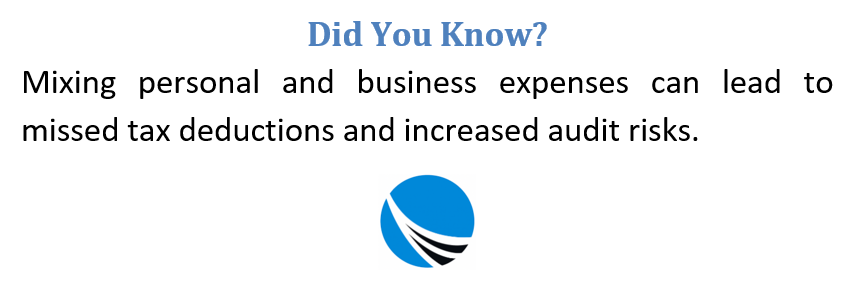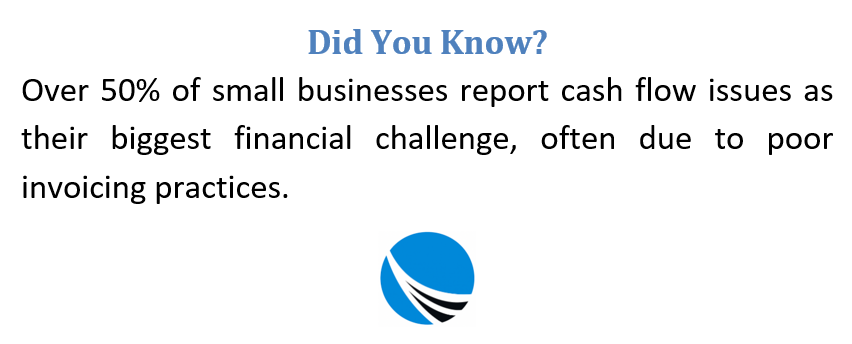As your enterprise begins to grow, handling the financials becomes one of the most crucial and sensitive aspects of management. In the early days, many business owners try to manage their bookkeeping themselves, believing it’s a simple way to cut costs. But as operations expand, the financial intricacies increase—and small mistakes can quickly snowball into major setbacks.
This guide explores the most common accounting oversights that small businesses face and offers practical tips for staying on track and making informed financial decisions.

Why Professional Financial Help Matters
While entrepreneurs often wear many hats at the start, accounting is a role that’s easy to mishandle without formal training. A professional accountant or bookkeeper can help avoid a host of costly mistakes. Their role isn’t just about recording numbers—it’s about ensuring financial processes are consistent, accurate, and compliant.
Depending on your current size, you might explore several options:
- Hiring a certified bookkeeper who maintains daily transaction records and reconciliations.
- Engaging a CPA to handle strategic tax planning, ensure compliance, and prepare financial statements.
- Working with a freelance accountant for part-time support, especially if you’re not ready to commit to a full-time hire.
Even a part-time expert can make a meaningful difference by providing insights and ensuring your financial foundation is sound.
Inaccurate Expense Tracking
Keeping accurate records is the bedrock of sound financial management. When expense tracking is inconsistent or haphazard, it creates problems that can cascade throughout your business operations—from incorrect budgeting to missed payments and flawed reporting.
Manual systems such as spreadsheets are prone to human error. Whether it’s overlooking a receipt or misclassifying a purchase, these mistakes can alter your profit margin or trigger compliance issues. A well-maintained accounting software solution allows you to track every transaction systematically, helping you analyze patterns and spot inconsistencies early.
This attention to detail isn’t just for internal planning—it becomes crucial during audits, funding pitches, and tax filings.

Blending Business and Personal Finances
A surprisingly common issue for small business owners is the mixing of personal and company finances. Swiping the same card for both types of purchases may seem harmless, but it creates confusion in your records and limits your ability to identify legitimate deductions.
This can also be problematic when applying for credit or preparing for investor scrutiny. Banks, lenders, and auditors all expect clean financial separations. If your personal spending overlaps with business expenses, it compromises your credibility and may trigger legal or tax concerns.
A clear solution: set up a dedicated business bank account and credit card. Keep all transactions tied to company activity, and log them regularly for full transparency.
Poor Invoicing and Delayed Receivables
Effective invoicing is critical to maintaining healthy cash flow. Many businesses run into trouble when they delay issuing invoices or fail to follow up on late payments. This leads to unpredictable income, missed financial commitments, and difficulty forecasting revenue.
To avoid this, implement a billing process where invoices are generated promptly upon completion of work. Use reminders and late fees for overdue accounts. Automating your billing with reliable invoicing software can minimize errors, track payment history, and help keep cash flowing steadily.
Chronic delays in collecting payments often stem from disorganized systems rather than client neglect. Tightening up these processes protects your business’s financial well-being.
Unpreparedness During Tax Season
Managing your taxes isn’t just about filing once a year—it’s about preparation throughout the year. Businesses often falter by treating tax filing as an afterthought, leaving them vulnerable to penalties, missed deductions, and last-minute stress.
Using tax-specific software integrated with your accounting system can help ensure your figures are accurate and organized well in advance. Additionally, consulting with a tax expert can help uncover ways to optimize your financial strategy and remain in good standing with the IRS.
Proactive tax planning pays off in the form of reduced risk, smoother audits, and the potential for legitimate savings.
Worker Misclassification
Distinguishing between employees and independent contractors is a legal obligation that affects tax payments, benefits, and labor protections. Misclassifying a worker could result in fines, back taxes, or lawsuits.
To determine proper classification, consider the nature of your relationship with the worker. Employees typically have fixed schedules, receive benefits, and report to a supervisor. Contractors operate independently, often working for multiple clients and controlling how they deliver services.
Ensure each worker completes the correct tax forms (W-4 for employees, W-9 for contractors), and when in doubt, seek legal or accounting advice to avoid compliance mishaps.
Neglecting to Back Up Financial Records
Digitizing receipts and invoices can streamline your operations, but relying solely on digital systems without proper backups can put your business at risk. From cyber threats to software failures, losing financial records can delay tax filing, cause compliance issues, or derail audits.
Store your critical documents—including tax returns, payroll records, vendor contracts, and receipts—in both digital and physical formats. Use cloud storage systems with multi-level encryption, and implement data retention policies to ensure key records are preserved for at least seven years.
Creating redundant systems may feel tedious, but it provides peace of mind and resilience in the face of technical setbacks.
Overestimating Available Cash
Misjudging how much money is actually accessible can have a domino effect on your operations. One reason this happens is due to duplicate income entries or confusion between pending and cleared transactions. Another issue is treating deposits like revenue without verifying their source.
To prevent this, reconcile your accounts regularly and review each line item to ensure it’s categorized correctly. Understanding how funds move from sales to your bank account will help prevent false assumptions about liquidity.
Being realistic about cash flow allows you to plan responsibly—ensuring you don’t overspend or commit to expenses you can’t cover.
Mismanagement of Income and Expenses
When revenue and expenses aren’t recorded accurately or categorized properly, your reports stop reflecting the true financial state of your company. This not only leads to bad decisions but may also result in overpaying taxes.
A clear and organized chart of accounts is vital. Use intuitive naming conventions and definitions so that anyone reviewing the books knows exactly what each category means. This promotes consistency and clarity across reports, helping you analyze trends, manage budgets, and file taxes correctly.
Take time to train whoever manages your books on your chosen structure, or use accounting software that supports easy classification and reporting.

Overdue Vendor Payments
Just as you expect timely payment from clients, vendors expect the same from you. Missing invoice deadlines can result in late fees, strained supplier relationships, and reputational damage.
Set up reminders and payment schedules to keep your accounts payable in order. You might also consider using accounts payable automation tools to streamline this process and ensure no invoice slips through the cracks.
Prompt payments not only maintain goodwill with suppliers but can also open the door to early-payment discounts and better credit terms down the line.
Ignoring Signs of Internal Fraud
Some business owners take a hands-off approach once they delegate financial duties, which can be risky. Failing to monitor your books could leave your company vulnerable to theft or misuse of funds.
While trust is important, implementing checks and balances is essential. This includes reviewing bank statements regularly, limiting access to financial systems, and rotating financial responsibilities periodically.
During hiring, thoroughly vet employees who will handle money. Background checks and professional references go a long way in preventing costly breaches of trust.
Proven Accounting Best Practices for Small Businesses
Maintaining financial health is an ongoing task. Below are proven strategies to strengthen your accounting practices and reduce the chance of errors:
Create Consistent Processes
Establish standardized routines for recording transactions, reconciling accounts, and preparing reports. Clear systems ensure everyone follows the same steps and supports better oversight.
Protect Your Data
Use secure passwords, two-factor authentication, and user-specific permissions for all accounting tools and financial accounts. This prevents unauthorized access and reduces the risk of fraud or data breaches.
Define Responsibilities Clearly
Clarify who handles payroll, tax filings, expense approvals, and payments. Clear roles improve accountability and minimize confusion or delays when issues arise.
Reconcile Accounts Monthly
By reconciling your accounts each month—bank, credit cards, loans—you catch discrepancies early. This habit ensures your financial reports are reliable and that any mistakes don’t accumulate.
Regularly Review Financial Workflows
Check in with an external accountant or a trusted financial advisor who can review your books for accuracy and efficiency. These reviews often reveal opportunities to simplify tasks or correct long-standing errors.
Understand Cost Structures
If you manufacture goods or offer complex services, make sure you know the full cost of delivering your product or service. This helps with pricing decisions and long-term profitability.
Use Tools That Suit Your Business
Select accounting software and tools that align with your operational size and complexity. Automating repetitive tasks like invoicing and payroll reduces manual errors and saves time.
Final Thoughts: Build Financial Systems That Scale
Good accounting isn’t just about survival—it’s about building a foundation for growth. As your business expands, so too should the sophistication of your financial systems. Avoiding these common accounting mistakes will help you make smarter decisions, build trust with stakeholders, and remain agile in a competitive environment.
Whether you hire full-time staff, bring on a part-time consultant, or invest in advanced accounting tools, your finances deserve expert attention. Prioritize accuracy, transparency, and strategic thinking—and you’ll be better equipped to steer your business toward sustainable success.
Frequently Asked Questions
Why is hiring a financial professional crucial for small businesses?
Professionals reduce costly errors, ensure compliance, and offer strategic insights that support long-term financial stability and growth.
What risks come with mixing personal and business finances?
It complicates record-keeping, affects tax filings, and may harm your credibility with lenders or during audits.
How can poor invoicing impact your business?
Late or missed invoices can disrupt cash flow, delay payments to vendors or staff, and harm your reputation.
What are the consequences of employee misclassification?
Misclassification can lead to tax penalties, lawsuits, and back payments for wages and benefits.
Why is monthly account reconciliation important?
It ensures your financial reports reflect reality, helps catch errors early, and supports accurate decision-making.
How can regular financial reviews benefit your business?
They help optimize workflows, catch hidden issues, and reveal opportunities to strengthen your financial systems.

